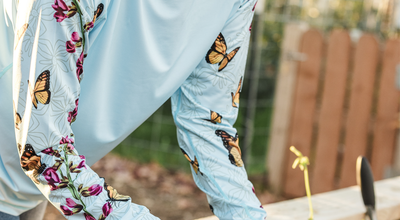Planting a Sustainable Garden: A Complete Guide
Are you searching for ways to reduce your carbon footprint and contribute to a healthier planet while still enjoying the beauty of nature? Look no further than sustainable gardening. Not only does it benefit the environment, but it can also enhance your well-being by providing a peaceful outdoor space to unwind. In this article, we will share tips and tricks for creating a sustainable garden that fosters a balanced ecosystem, conserves water, and avoids harmful pesticides and fertilizers. By incorporating these practices, you can create a garden that is not only beautiful but also eco-friendly.

So what is a Sustainable Garden?
A sustainable garden is a garden that is designed to work in harmony with nature, rather than against it. It incorporates practices such as composting, using organic fertilizers, and choosing native plants that require less water and maintenance.
How to Plant a Sustainable Garden
Start with a Plan
Before you start planting, it's essential to have a plan. Decide on the size and layout of your garden, and consider what types of plants you want to grow. Make sure to choose plants that are well-suited to your climate and soil type.
Use Compost and Organic Fertilizers
Composting is an excellent way to create nutrient-rich soil that is perfect for planting. Start by collecting kitchen scraps and other organic materials, such as leaves and grass clippings. Add them to a compost bin, and allow the mixture to decompose over time. Once it's ready, use the compost as a natural fertilizer for your garden.
Using organic gardening practices, such as composting and avoiding chemical pesticides and fertilizers, can help to make your garden more sustainable. Organic gardening practices help to improve soil health and promote healthy plant growth, which reduces the need for water and other inputs.

Choosing plants:
Consider the Plant's Ecological Impact
When choosing plants for your garden, it's important to consider their ecological impact. Some plants, particularly invasive species, can harm the environment by out-competing native plants and disrupting local ecosystems. Choose plants that are known to be non-invasive and won't harm local wildlife.
Choose Perennial Plants
Perennial plants, which come back year after year, are a great choice for a sustainable garden because they require less water and maintenance than annuals. They also help to maintain soil health by providing year-round ground cover and reducing erosion.

Choose Plants That Support Pollinators
Pollinators, such as bees and butterflies, play a critical role in maintaining healthy ecosystems. By choosing plants that support pollinators, you can help to promote biodiversity and support the health of local ecosystems. Look for plants that produce nectar or provide habitat for pollinators.

Native Plants
Native plants are well-suited to your climate and soil type, making them an excellent choice for a sustainable garden. They also require less water and maintenance than non-native plants, which means you'll save time and money.
Reduce Water Usage
Water is a precious resource, and it's important to use it wisely in your garden. Choose plants that require less water, and consider using a drip irrigation system to reduce water usage even further.
Use Natural Pest Control Methods
Pesticides can harm beneficial insects and birds, as well as the environment. Instead, use natural pest control methods, such as companion planting, crop rotation, and beneficial insects like ladybugs and praying mantises.

Common Problems and Solutions
Weeds
Weeds can quickly take over a garden and compete with your plants for resources. To prevent weeds, use mulch, and hand-weed regularly, and avoid disturbing the soil.
Pests
Pests can also be a problem in any garden. Use natural pest control methods, such as companion planting and beneficial insects, and remove any diseased or damaged plants.

Soil Quality
If you're looking for ways to reduce your environmental impact while enjoying the benefits of nature, planting a sustainable garden is a great place to start. By following some simple tips and tricks, you can create a beautiful and productive garden that works in harmony with the environment.












